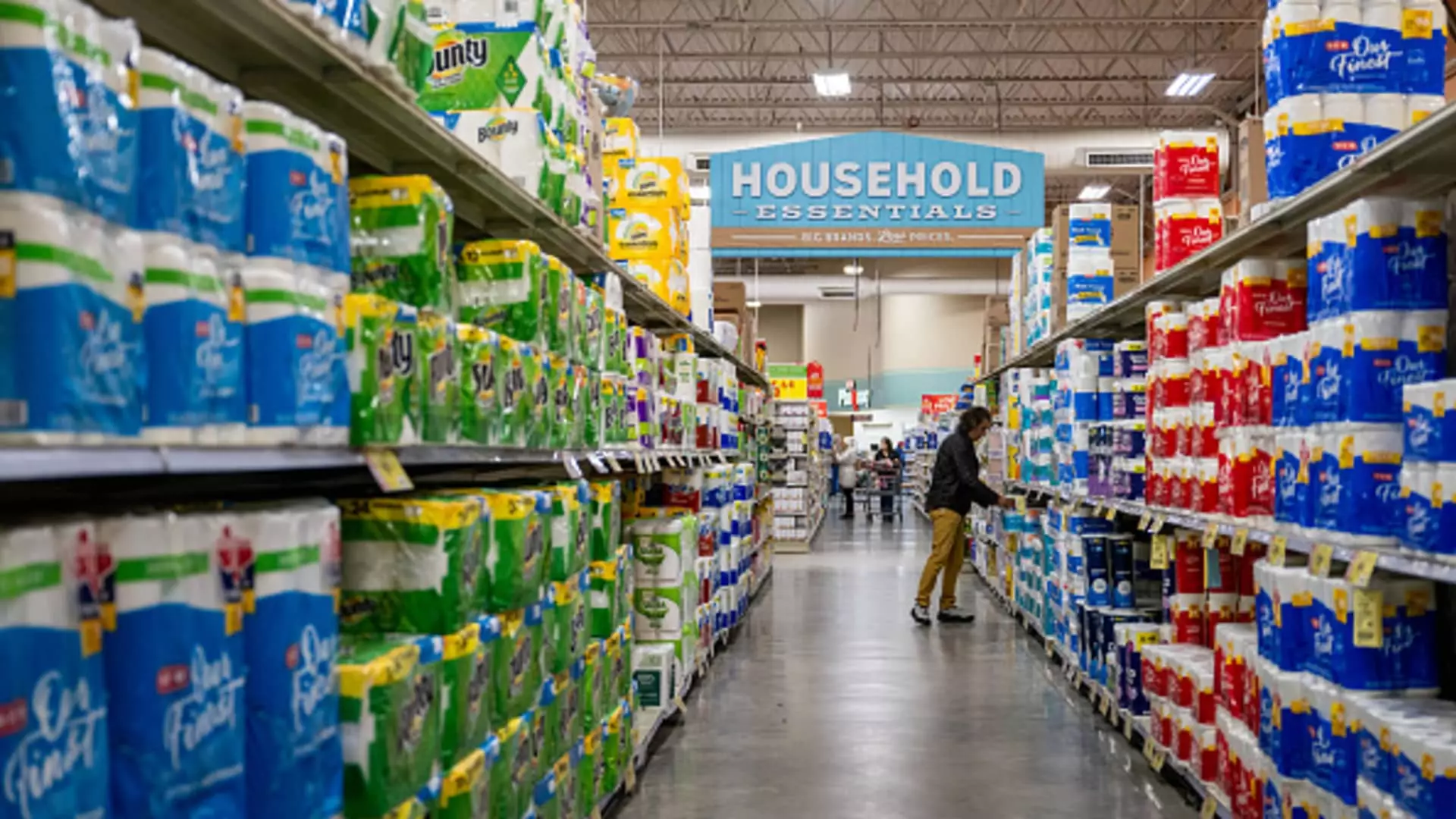As the Trump administration implements new tariffs aimed at bolstering American jobs, consumers are poised to face an unwelcome reality: an increase in everyday prices. These tariffs, affecting a staggering number of goods imported from over 180 nations, ostensibly serve to protect domestic industries and promote a “Buy American” ethos. However, the ramifications of these policies extend far beyond economic patriotism and enter the realm of unintended consequences that directly impact consumers’ wallets.
The Unintended Price Hikes
The allure of America First trade policies quickly dissipates when we consider the critical ingredients and resources unavailable domestically. The Consumer Brands Association (CBA), which represents major corporations like Coca-Cola and Target, highlights the ironies inherent in these tariffs. For example, Americans favor tropical imports—such as bananas and vanilla—products that we cannot produce due to climate limitations. When tariffs are imposed on these essential food staples, consumers will inevitably bear the brunt of increased costs, not just at the checkout line but across the spectrum of everyday consumer goods.
Regardless of the intentions behind these tariffs, one must question their efficacy in achieving job growth without rigorous consideration of the complexities involved in supply chains. The backlash comes in the form of higher prices, which contradicts the very purpose of improving the economic outlook for American families.
Global Dependencies Alter the Landscape
It’s crucial to understand that decades of globalization have woven a complex fabric of dependencies into the U.S. economy that these tariffs overlook. For instance, over 90% of oats used for food processing are sourced from Canada, stemming from a historical decline in domestic oat production. The notion that America can swiftly pivot to become self-reliant overlooks the reality of established supply chains that fulfill consumer demands.
Tariffs on imported goods such as palm oil and shea butter—common ingredients in household products—further reflect a broader issue: domestic production cannot satisfy current consumption levels. The black-and-white vision of economic nationalism is shaded by the complexities of how modern economies operate, emphasizing that the imaginary line between local and global is thinner than ever.
Consumer Backlash: An Inevitable Response
As grocery bills increase, consumer patience is likely to wear thin. The CBA’s push for exemptions on essential imports serves to highlight an impending consumer backlash that could manifest politically as well as economically. It raises the ever-present question: how does an administration justify policies that result in demonstrable financial hardship for ordinary citizens? The chronic rise in costs will serve as a powerful reminder that the effectiveness of these policies must be monitored not just via abstract economic statistics but through real-world consumer experiences—a lesson that appears to be lost on policymakers.
Investors are picking up on these trends, supposedly indicating confidence in the consumer staples sector amid this turmoil. Stocks of relevant companies may rise, but this does not reflect a jubilant consumer sentiment; instead, it highlights a more ominous reality where essentials are given a higher price tag and profits become prioritized over the welfare of the consumer.
Cultural Implications of Rising Costs
Worsening economic conditions can lead to cultural shifts, as consumers navigate rising prices not just for luxuries, but for basics like toilet paper and diapers. These are not simply “optional” purchases; they are requirements that affect everyone’s daily lives. As prices rise, critical financial challenges come to the forefront, potentially altering shopping habits and forcing families to prioritize which essential products they can afford.
Tariffs thus symbolize more than economic measures; they underscore a shift in the American way of life. Families may opt for less expensive brands or diminish their reliance on certain products altogether, leading to changes in consumption patterns and ultimately, in the cultural fabric. Hence, the ramifications of tariff policies extend well into the household, reshaping how everyday Americans navigate their finances.
While the stated goal of supporting American workers is noble, the broader context of economic interdependence and the hidden costs of tariffs require urgent recognition. Americans must grapple with the real implications of these measures and rethink what patriotism means in an increasingly integrated world. The clash of ideals and economic realities creates a tumultuous landscape that demands a nuanced understanding, lest we forsake our economic wellbeing for a fleeting sense of national pride.

